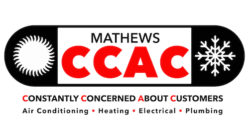
Other than smell, it’s hard to identify how many of these compounds are in the air. Sensitivity to VOC exposure varies by individual. The reactions range from minor respiratory issues to serious health problems like nervous system damage to cancer.
Where They Come From
Other than the warnings printed on some cleaning or home renovation products, manufacturers don’t have to disclose that their products will emit these gases. You’ll find them in anything perfumed, air freshener, makeup, dry cleaning, paint, finishes, glues, adhesives, new flooring and furniture, along with some plastics and candles.
Homes with attached garages may have higher levels of VOC gases, especially if vehicles, yard or pool chemicals, or paints and finishes are stored inside it.
Managing the Levels
The two approaches that work best to control VOCs are to supply fresh air continuously, along with using UV (ultraviolet) lights. You can use your HVAC system to supply both fresh air and UV protection.
Energy recovery ventilators (ERVs) are mechanical devices that pull out stale indoor air and replace it with fresh. They can vent directly into your HVAC system, or into a specific area where VOC concentrations are the highest. ERVs are the most energy efficient way to bring fresh air into your home during the summer, since they use heat exchange technology that cools the air before it enters your room or ductwork.
HVAC professionals place UV lights inside the ductwork or air handler to neutralize the VOC gases that pass over the lights. UV lights also reduce the concentrations of bacteria, viruses and mold spores in the indoor air by preventing them from reproducing.
Over the long summer, VOCs may build to unhealthy levels in your home. For help improving IAWQ and combating VOCs with your HVAC system, contact CCAC.
Our goal is to help educate our customers in Corpus Christi, Texas about energy and home comfort issues (specific to HVAC systems). For more information about your HVAC system, download our free Home Comfort Guide or call us at 361-678-2495.












